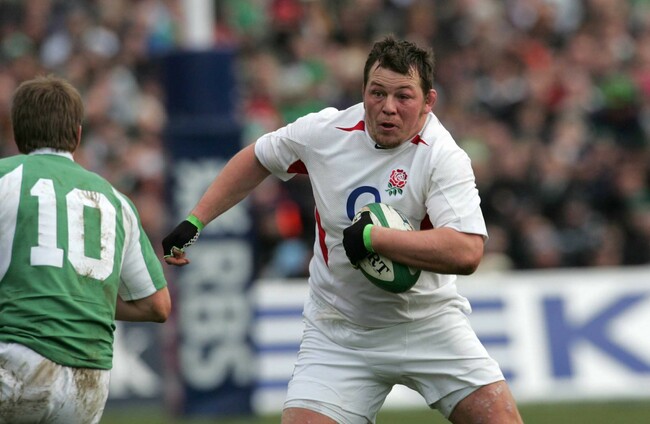THE WORDS OF Steve Thompson and Alix Popham make for harrowing reading but, sadly, they don’t come as a great shock.
Rugby authorities have been waiting for this moment with trepidation and the sport now faces a defining challenge as a group of eight former players consider bringing legal action against World Rugby, England’s Rugby Football Union, and the Welsh Rugby Union.
Former England hooker Thompson, who is only 42, has revealed to the Guardian that he has been diagnosed with early onset dementia and probable chronic traumatic encephalopathy [CTE].
Ex-Wales back row Popham, 41, has received the same diagnosis, as he explained to the BBC today.
Their interviews are worth reading and watching in full in order to understand the scale of devastation they and their families are facing on the back of their professional rugby careers.
Thompson, Popham, and the six other players involved believe their diagnoses come on account of the brain injuries they suffered while playing rugby.
There has been a trickle of concussion-related stories from ex-players in recent years, with the horrific travails of Shontayne Hape and, more recently, Michael Lipman – another of those involved in the case with Thompson and Popham – standing out among them, and it has always felt like a matter of time before legal proceedings were initiated.
“I don’t want to kill the game. I want it regulated,” said Thompson.
This group of ex-players reportedly have a 15-point charter for rugby, a list of measures they believe could reduce the negative long-term effects of playing the sport professionally.
A limit on contact in training seems like an eminently actionable measure and one that other players, including the recently-retired ex-England captain Dylan Hartley, have already been calling for even aside from the issue of brain injury.
Limiting the number of replacements allowed per game is another sensible suggested measure. Seeing teams use ‘Bomb Squads’ and ‘Finishers’ off the bench underlines how consistent the impacts of 80-minute games can be, with little scope for fatigue to increase the amount of space available out on the pitch and therefore reduce the severity and regularity of collisions.
“Competent baseline testing” for players’ brain function every pre-season is surely not beyond the professional sport either, while these ex-players also want better education on the issue of concussion within the game.
Top of the list, though, is for World Rugby to “accept that playing professional rugby can lead to CTE and other neurodegenerative diseases.”
The testimonies and diagnoses of the likes of Thompson and Popham underline the reality for some former professional rugby players. Of course, they don’t speak for many who have left the sport without serious brain injury, but there must be more like them. Perhaps we will hear further accounts on the back of their words.
World Rugby has made measures to reduce the threat of brain injury with increased sanctions for high tackles, despite the nonsensical and persistent complaints from some that ‘rugby has gone soft.’ Today’s news only underlines the importance of continuing that mission even more zealously.
It is jarring to remember that the 10-minute Head Injury Assessment was only adopted into permanent rugby law as recently as 2015 but that has at least seen players removed from the firing line more often, even if it has vehement critics in the likes of former World Rugby medical chief Barry O’Driscoll.
That players can get through their ‘return-to-play protocols’ in just a week is another part of professional rugby that has come under scrutiny.
That this group of ex-players has highlighted the importance of limiting contact in training is pertinent, given the concerns that it is the cumulative effect of constant heavy-duty collisions that can result in long-term brain injuries, not just the obvious concussive moments that leave players debilitated on the ground.
The rugby world will watch on as this story of the eight former players unfolds but today’s news is a timely reminder that the sport’s biggest problem isn’t going away any time soon and that the worst of it may now be upon the game.
Beneath the professional level, it is also a reminder to those of us who have played through or very soon after concussion, or overlooked a team-mate doing so, that brain injury in rugby is something to take very seriously indeed.


